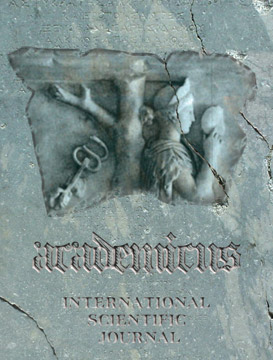Title:
Simulation Analysis of the Effects of Increased Foreign Ownership on Wage Inequality
Full Reference List:
| 1. | Aitken, B.; Harrison, A. and Lipsey, R. (1995). Wages and Foreign Ownership: A Comparative Study of Mexico, Venezuela, and the United States. NBER Working Paper, no. 5102. |
| 2. | Bevan, A. and Estrin, S. (2004). The Determinants of Foreign Direct Investment into European Transition Economies. Journal of Comparative Economics, vol. 32, issue 4, pp. 775-787. |
| 3. | Braunstein, E. (2006). Foreign Direct Investment, Development and Gender Equity: A Review of Research and Policy. United Nations Research Institute for Social Development Occasional paper, no.12. |
| 4. | Colen, L.; Maertens, M. and Swinnen, J. (2008). Foreign Direct Investment as an Engine for Economic Growth and Human Development: A Review of the Arguments and Empirical Evidence. Leuven Centre for Global Governance Studies Working Paper, no.16. |
| 5. | Di Mauro, F. (2000). The Impact of Economic Integration on FDI and Exports: A Gravity Approach. CEPS Working Document, no. 156. |
| 6. | Driffield, N.; Girma, S.; Henry, M. and Taylor, K. (2010). Wage Inequality, Linkages and FDI. IZA Discussion Paper, no. 4722. |
| 7. | Estrin, S. and Uvalic, M. (2013). Foreign Direct Investment into Transition Economies: Are the Balkans Different? LSE ‘Europe in Question’ Discussion Paper Series, no.64. |
| 8. | Feenestra, R. (2007). Globalization and Its Impacts on Labour. wiiw Working Papers, no. 44. |
| 9. | Feenstra, R. and Hanson, G. (1996). Globalization, Outsourcing, and Wage Inequality. NBER Working Paper, no. 5424. |
| 10. | Franco, C. and Gerussi, E. (2010). Trade, FDI and Income Inequality. Empirical Evidence from Transition Countries. MIUR Working Paper Series, no.15. |
| 11. | Garibaldi, P.; Mora, N.; Sahay, R. and Zettelmeyer, J. (2001). What Moves Capital to Transition Economies? IMF Staff Papers, no.48. |
| 12. | Grimalda, G. and Meschi, E. (2008). Accounting for Inequality in Transition Economies: An Empirical Assessment of Globalization, Institutional Reforms, and Regionalisation. CSGR Working Paper, no 243. |
| 13. | Holland, D. and Pain, N. (1998). The Diffusion of Innovations in Central and Eastern Europe: A Study of the Determinants and Impact of Foreign Direct Investment. NIESR Discussion Paper, no. 137, National Institute of Social and Economic Research, London. |
| 14. | ILO (2008). Global Employment Trends. International Labour Organisation (ILO), Geneva. |
| 15. | Kinoshita, Y. and Campos, N. (2004). Estimating the Determinants of Foreign Direct Investment Inflows: How Important are Sampling and Omitted Variable Biases? BOFIT Discussion Papers, no. 10. |
| 16. | Kolotay, K. (2010). Patterns of Inward FDI in Economies in Transition. Eastern Journal of European Studies, vol.1, issue 2, pp. 55-76. |
| 17. | Lipsey, R. (2002). Home and Host Country Effects of FDI. Paper for ISIT Conference on Challenges to Globalization. Lidingö, Sweden. |
| 18. | Lipsey, R. and Sjöholm, F. (2004). Foreign Direct Investment, Education and Wages in Indonesian Manufacturing. Journal of Development Economics, no.73, pp.415-422. |
| 19. | Mickiewicz, T.; Radošević, S. and Varblane, U. (2000). Foreign Direct Investment, Structures of Employment and Job Creation in Transition Economies, 1993- 1996. Chapter 3. Waresa, M.A., (eds.) Foreign Direct Investment in a Transition Economy: The Polish |
| 20. | OECD-ILO (2008). The Impact of Foreign Direct Investment on Wages and Working Conditions. OECD Conference Centre, Paris, 23-24 June 2008. |
| 21. | Pastore, F. and Verashchagina, A. (2011). When Does Transition Increase the Gender Wage Gap? Economics of Transition, vol.19, no.2, pp.333-369. Rutkowski (2006) and |
| 22. | Serbu, S. (2005). FDI Flows Towards CEECs: An Analysis on the Romania, Hungary and Slovenia’s Performances. University of Orleans, France and “Babes-Bolyai” University, Cluj-Napoca, Romania. |
| 23. | Te Velde, D.W. (2002). Government Policies for Inward Foreign Direct Investment in Developing Countries: Implications for Human Capital Formation and Income Inequality. OECD Working Paper, no.193. |
| 24. | Te Velde, D.W. (2003). Foreign Direct Investment and Income Inequality in Latin America. Overseas Development Institute, London. |
| 25. | UNCTAD (2003). World Investment Report. FDI Policies for Development: National and International Perspectives, United Nations. |
| 26. | UNCTAD (2006). World Investment Report. FDI from Developing and Transition Economies: Implications for Development, United Nations. |
| 27. | UNCTAD (2009). World Investment Report. Transnational Corporations, Agricultural Production and Development. United Nations. |
| 28. | UNCTAD (2010). World Investment Report. Investing in a Low-Carbon Economy. United Nations. |
| 29. | UNCTAD (2012). World Investment Report. Towards a New Generation of Investment Policies, United Nations. |
| 30. | UNCTAD (2013). World Investment Report. Global Value Chains: Investment and Trade for Development, United Nations. |
| 31. | Vijaya, R. and Kaltani, L. (2007). Foreign Direct Investments and Wages: A Bargaining Power Approach. Journal of World-Systems Research, vol. 13, no. 1, pp. 83-95. |
Back to article
Academicus
International Scientific Journal
pISSN 2079-3715
eISSN 2309-1088
Address:
Sheshi i Flamurit, Rruga Muze
Al-9401 Vlorë, Albania
Tel: +355 68 60 60 555
info@academicus.edu.al
https://academicus.edu.al


